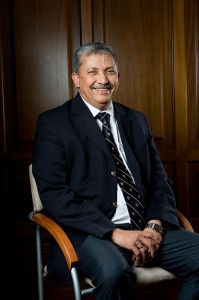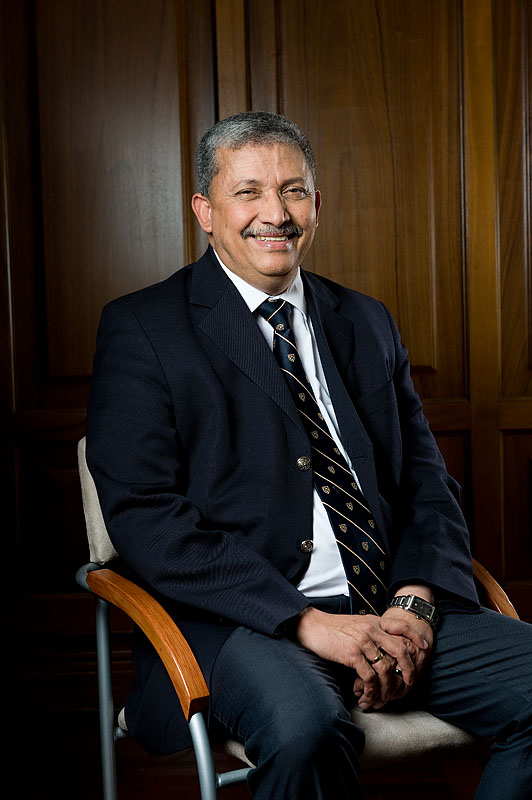The church and politics in South Africa after twenty years of democracy – Nico Koopman
 South Africans went to vote on the 7th of May 2014. The elections provide opportunity to reflect upon the role of Christians and churches in politics in South Africa, twenty years after the birth of democracy on the 27th of April 1994.
South Africans went to vote on the 7th of May 2014. The elections provide opportunity to reflect upon the role of Christians and churches in politics in South Africa, twenty years after the birth of democracy on the 27th of April 1994.
Involvement in the life of the city, the polis, of politics, is a strong biblical mandate. Even in exile, believers were called to pursue the wellbeing of the city (Jeremiah 29:7). During the Easter weekend Christians commemorated and celebrated the death and resurrection of Christ for the sake of the wellbeing of the universe (John 3:16).
We serve the wellbeing of the city in many ways, amongst others by participating in elections. In South Africa millions of people were denied the privilege, right and responsibility of voting for a long time. Sacrifices were made to ensure the right to vote for all. But many people approach the election of 7 May this year more uncertain than ever, particularly about whom they should vote for. Many celebrated the 20th anniversary of democracy in South Africa on Freedom Day, i.e. the 27th of April 2014, feeling that it may even be best not to vote at all this year.
Political leaders across all party politics lines disappoint. The noble vision of democracy and the practice of democracy are not the same for all political leaders. The practice of politics as a calling, as vocation, as vocatio, as something for which I live, as pleaded for by German sociologist Max Weber, and as modelled by Nelson Mandela, has become rare in South Africa and elsewhere in the world. The practice of politics only as Beruf, as career, as profession, as something from which I live, even as something that enriches me, dominates.
How can we transform this public embarrassment of inadequate leadership into an opportunity? These might perhaps be some of the challenges that churches can put in the present to South Africans citizens:
Let us encourage committed, talented and competent people to become fulltime politicians. Let us demonstrate what an honour it is to pursue a political career in order to actualization a life of dignity, justice and freedom for all, for all people, all creatures, for all of nature.
Let us assure those who enter politics that there will be believers who pray for them, and partners in faith communities and the rest of the civil community who support them.
Let us encourage young people and older people to understand that politics can be a vocation and a career, something for which I live, and something from which I live in an honest, fair and transparent manner.
Let us admit that in all public professions there are people who damage that profession, but that this fact does not deter us from those professions and institutions and the important work they do.
Let us participate in elections, knowing that we vote for imperfect people. But let us also vote with the determination to work as active citizens for a future dispensation in which politics is practiced as a calling.
Nico Koopman is Dean of the Faculty of Theology, Director of the Beyers Naude Centre for Public Theology and Professor of Systematic Theology at Stellenbosch University. He is also an ordained pastor of the Uniting Reformed Church in Southern Africa. His research and publications focus upon Public Theology. From a Trinitarian perspective he reflects upon the public content, the public rationality and the public impact of Christian faith.


The question for the next 10-20 years is(should be) about the relevance and impact of the church in matters on social/economic justice and the challenges with the impact of secularism on society. South Africa and many developing countries might face similar issues as the developed world with the church (and God) becoming more and more irrelevant in society. Spirituality/faith without God (prof. Lloyd Geering -NZ.)will, for some, be an alternative option.
Unfortunately, the church via it’s leaders and structures, pick & choose which issues they would be involved with, lest they are seen to be interfering in politics. This, makes them forget their mandate of fighting on the side of the persecuted & less fortunate, without fear or favour. Gone are the days of the Revds Beyers Naude and Sam Buti, who had that very calling deeply rooted in their hearts & minds. May their soul rest in peace.
The church has lost her calling to the world: The prophetic voice is getting weaker and weaker. The church or should I say God, through missions was strongly and actively involved in the past. Most of our political leaders got their education through church and or mission schools. Where is that spirit today? Are we (the church) not following the world instead of being a lot to the world? Have we shifted from being the nerve center of our nation – contributing to the wellbeing of our nation and raising the alarm if things do not work according to plan. The article is very helpful and encouraging us where ever we are – to be stand firm and stand in truth without prejudice and biased.